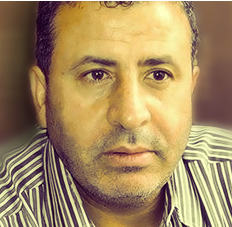The regime-backed Nation’s Future Party (NFP) dominated the majority of the House of Representatives committees during the internal elections, which reflects the sweeping victory of its candidates in the recent parliamentary elections. The NFP grabbed the presidency of 18 committees out of a total of 25 committees. The rest of the committees went to representatives appointed or affiliated with parties allied to the majority party. On Thursday the House of Representatives, headed by judge Hanafi Jabali, held a procedural session to form parliamentary committees, during which parliament committees were formed.
The appointed MPs won the presidency of five other committees, while independent deputies won the presidency of a committee, and the presidency of the last committee went to the Freedom Party. Two female MPs won the presidency of tourism and aviation, culture, and media committees. Ali Jumaa was elected to head the Religious Affairs Committee, and Major General Alaa Abed chaired the Transport and Communications Committee, instead of the human rights committee in the previous parliament.
The NFP’s complete control of parliament raises fears of a repeat of the political practices prevailing in the era of Hosni Mubarak, whose National Democratic Party (NDP) imposed complete control over political life in Egypt. Observers believe that the country is witnessing the return of Mubarak’s ruling party, but in one form or another name. While the parliament was formed almost without opposition, some former members of the Egyptian parliament began to return to the political stage to arrange the opposition ranks, despite concerns about the difficulties they expect to face.
The attempts to organise new ranks for the opposition come in light of the absence of the Muslim Brotherhood (the largest opposition group in the country) from the political scene due to the ongoing security crackdowns and prosecutions launched by the Egyptian regime against it since the 2013 coup. Some former parliament members are trying to return to political life from within the country’s opposition parties after representing their constituencies as independents throughout their political life.
“The strong opposition is a sign of a healthy political system. I hope the government will not make a mistake by showing intolerance of this opposition,” said former parliamentarian Haitham Hariri. Hariri, who is from Alexandria, lost the last parliamentary elections in October and November. Like other losing parliamentarians, especially the government’s outspoken critics, Hariri felt that there was a dirty game being played behind the scenes. In December, Hariri decided to join the Socialist Popular Alliance, the political party that his father helped establish in 2011. Observers expect that Hariri will be promoted to a leadership position within the party soon. Hariri is not considered a unique case among former parliamentarians. Former parliament members are trying to do the same in what is a phenomenon on the political stage in Egypt.
On December 25, the former MP Ahmed al-Tantawi from Kafr el-Sheikh governorate in the Nile Delta became head of the Dignity Party, the Nasserite political party to which former presidential candidate Hamdeen Sabahi belonged. Other junior members of the same party were promoted to leadership positions in what amounts to a renewal of blood in the Dhuhr Party in 2011 with high hopes, before witnessing these hopes shattered one by one due to the intense rivalry between the Islamists and the army. Other former parliament members joined the political parties, such as former MP Mohamed Fouad, who joined the Egyptian Social Democratic Party in September 2020. These former MPs share the bitterness they feel about losing the election and their goal of strengthening the secular opposition and providing Egyptians with an alternative to the two competing powers that have ruled Egypt for many decades, the military and the Islamists.
Politicians hope that the presence of these former MPs within political parties will give these parties more energy. These young politicians revive hopes for a strong opposition on the Egyptian political stage and a more vibrant political life. But analysts said it was uncertain whether these former members were able to threaten Sisi’s grip on power, given the tiny margin available for political parties to reach out to the public.
Egypt includes more than 100 political parties, most of which were established after the 2011 uprising that ended the late President Hosni Mubarak’s rule. However, political parties are weak on the political stage as well as among ordinary people. The reason for this, political party leaders say, is the lack of space for the parties to work and communicate with the public. Political parties operate under intense restrictions by the security services, which also discredits them through the pro-government media.





Recent Comments